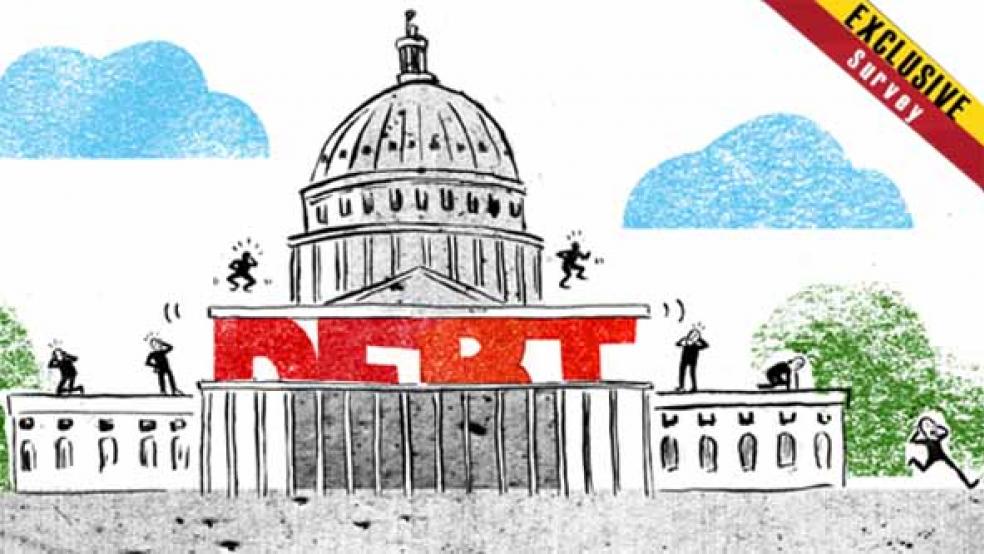Sitting in a Capitol Hill basement on Wednesday, Republican congressional aides heard a lunchtime presentation about why their bosses were wise to back down on the debt limit.

The economist walking them through the argument used a series of blunt metaphors—most notably, nuclear annihilation. An apocalyptic mushroom cloud filled one of the slides used by Stan Veuger, a research fellow at the conservative American Enterprise Institute.
But first let’s walk through the state of play on the $16.4 trillion borrowing authority, which the government technically breached at the end of last year. House Republicans voted last week to suspend the debt ceiling through mid-May, so the government can continue operating for several more months without the threat of default. The Senate is expected to approve the measure today.
GOP lawmakers previously used the debt ceiling as a political sledgehammer. In the summer of 2011, the party withheld an increase—and put the country on the edge of default—until President Obama agreed to a deal that cut $2.44 trillion in spending over the next decade.
So, why back down this time?
Hill staffers heard an explanation from Veuger based on two comparisons that give a sense of how more conservative thinkers view the debt limit:
The Billfold vs. The Aleutian Wallet
Veuger showed a picture of a wallet used more than a century ago by the native Aleutian people who live on islands that are now part of Alaska. It’s essentially a small bag designed for an era where people didn’t have to carry around credit cards.
By contrast, the leather billfolds most people use today have several slots for credit cards. The government today—unlike a century ago—has credit cards of its own with entitlement programs such as Medicare and Social Security.
As Veuger explained it, these are payments that the government has already committed to—regardless of the government’s legal borrowing authority. There were no credit cards, he said, when the debt ceiling was introduced in 1916, making it as archaic as the Aleutian wallet.
“What the debt ceiling does is say we’re not going to pay our credit card bills,” he said. “That’s fine in a world without credit cards.”
Nuclear Apocalypse
So if the debt ceiling is outdated economically, its main value now is serving as a political tool in negotiations with the White House.
But it’s one of the deadliest weapons in Congress’ stockade. It is simply too massive for the task at hand, since in its wake the entire economy could crumble in a way that would make us long for our current debt woes. It is bringing an atomic bomb to a firefight.
“If you’re trying to defeat pirates off the coast of the Sudan, you don’t want to drop seven nuclear weapons,” Veuger said.
No one wants to stand near a nuclear bomb on the verge of being detonated … particularly not with re-election less than two years away. Veuger ended his remarks by saying, “Please be not idiotic and ruin everything.”




